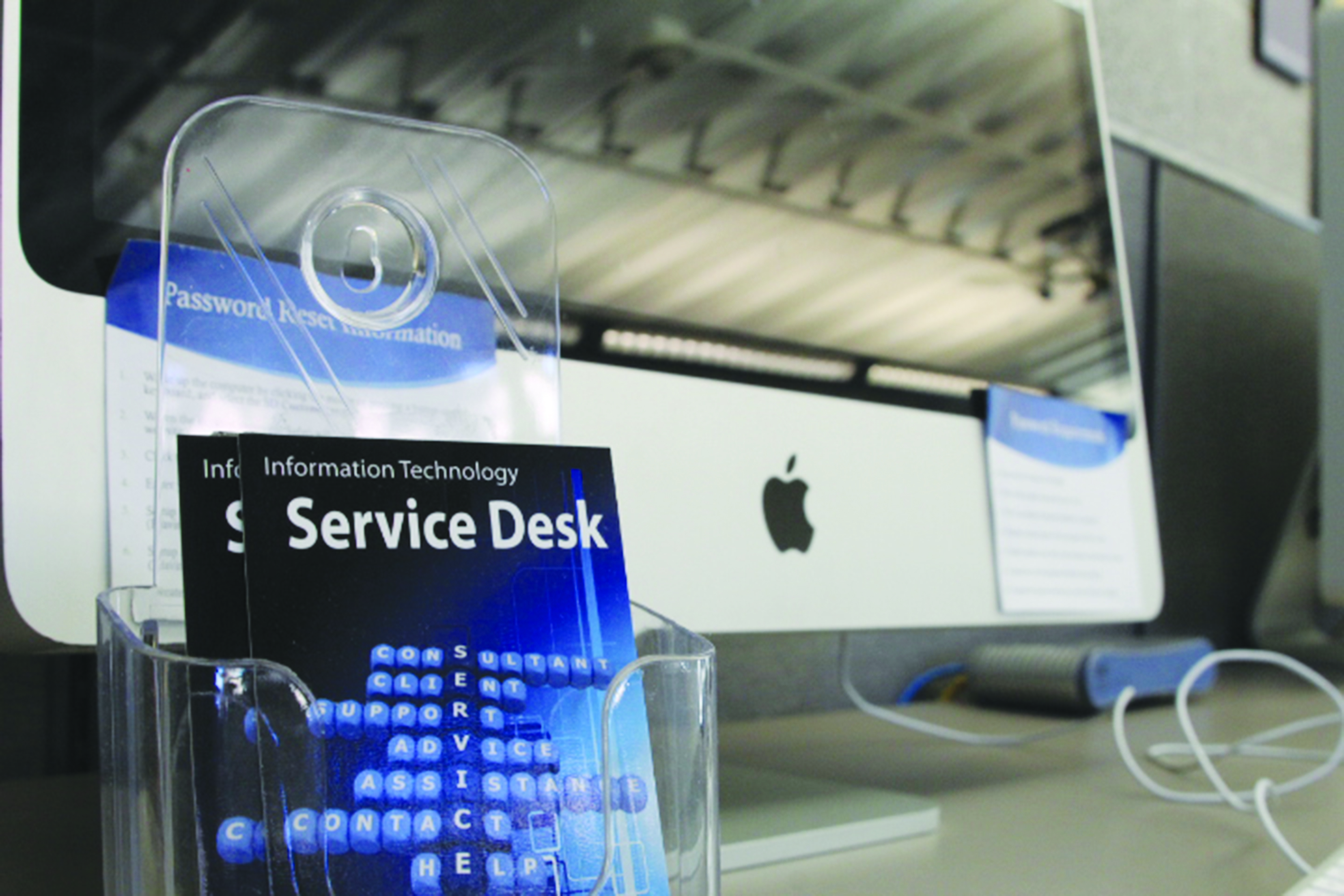Computer viruses affecting more students
Since the beginning of the school year, the IT Service Desk has seen an increase in incidents related to malware and computer viruses across all platforms and operating systems, including Apple.
“I have seen more incidents with malware this semester than ever before,” said Brooks Saunders, desk technician at the IT Service Desk.
Some students used to be under the impression that Apple computers were more secure.
“As Mac computers become more popular, more people are targeting them. A Mac is still susceptible to a virus just like a PC is,” said service technician, Nicholas Stauffer.
Many of the recent incidents involving viruses have been on Apple computers.
In addition to affecting more platforms, viruses are also getting more creative in how they affect computers.
“A newer type of virus on the rise is called Ransomware which restricts access to your own computer or files until you pay a fine to the creator of the virus, often via a digital currency such as Bitcoin which is more difficult to trace.” said Stauffer.
Any type of virus can be dangerous to a computer and in many cases the only option to remove the virus is to perform a hard reset.
“The best chance of removing a virus is by erasing the hard drive and reinstalling the operating system” Stauffer said.
The process of reloading an operating system can be costly and time-consuming. The IT Service Desk policy states that technicians will usually refer students to outside companies for these types of services unless the computer has been restricted from the USU network as a result of the virus.
Students are better off avoiding viruses than dealing with them afterwards.
“Don’t illegally download copyrighted material and use caution when visiting websites. Don’t click on sketchy ads or links you get in your email.” Saunders said. “Even ads on Facebook can lead someone to accidentally download malware.”
The USU IT website also advises downloading anti-virus software to protect against the threat of viruses, suggesting one of two programs: MalwareBytes for Windows Operating Systems and ClamXav for Apple. Links to both programs can be found on the USU IT website, it.usu.edu, and both can be downloaded free of charge.
“I think it’s important to use some sort of anti-virus program just in case you do accidentally click something or download an infected file,” Stauffer said. “Just remember that even the best anti-virus can sometimes miss viruses too.”
In all cases, students should avoid websites and programs that don’t appear to be secure. Technicians reported that many of the recent problems have come from students browsing unsecured websites and downloading software from illegal peer-to-peer file-sharing websites.
— cody.scott@usu.edu

